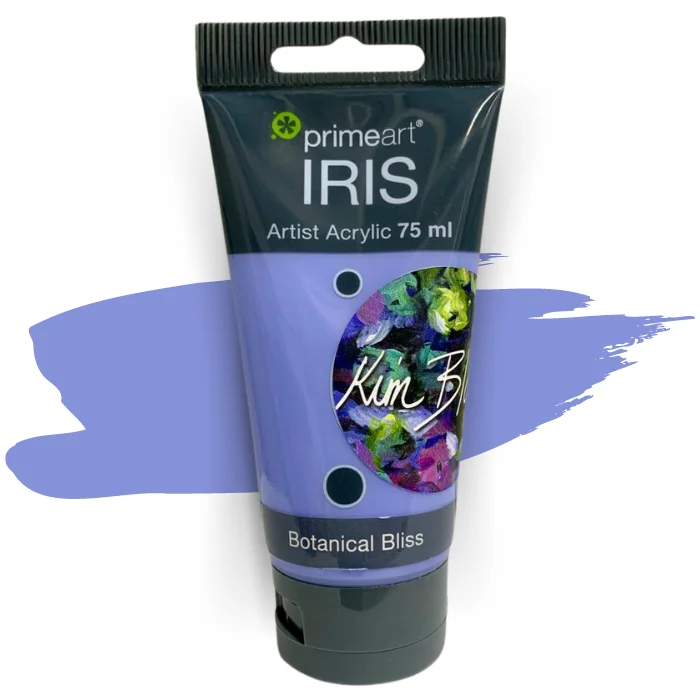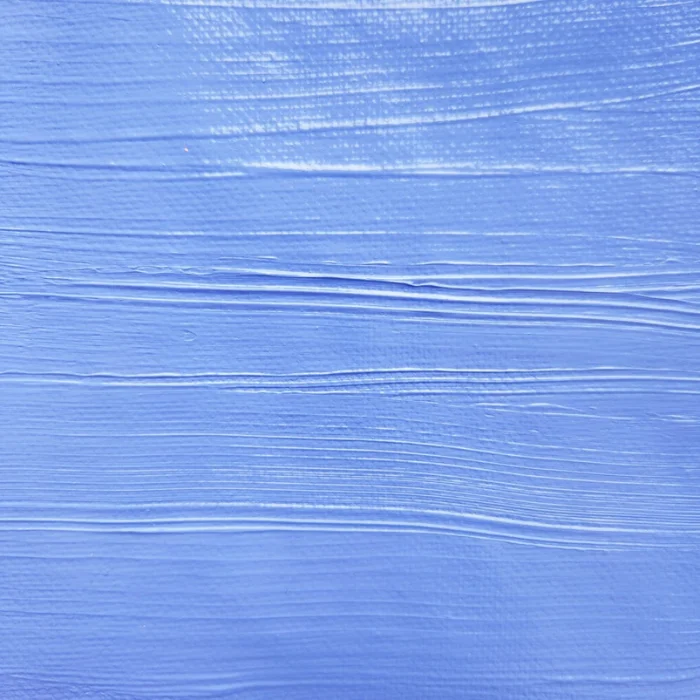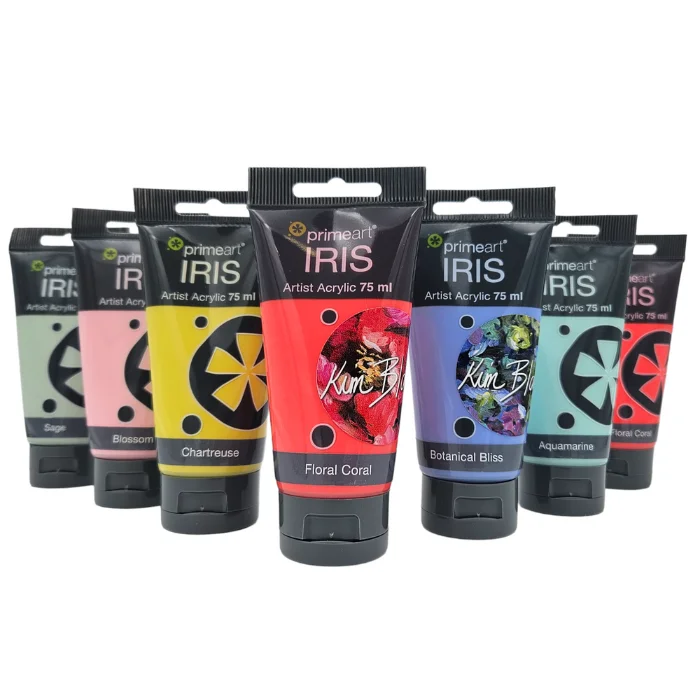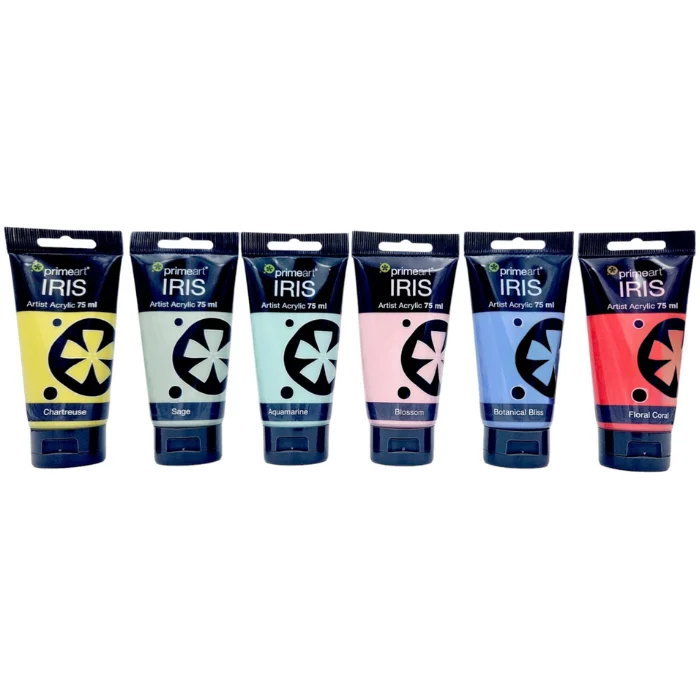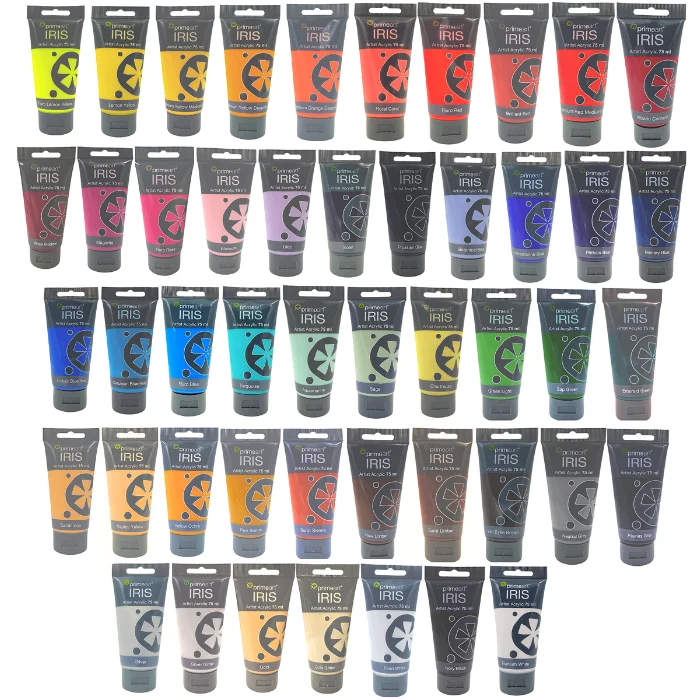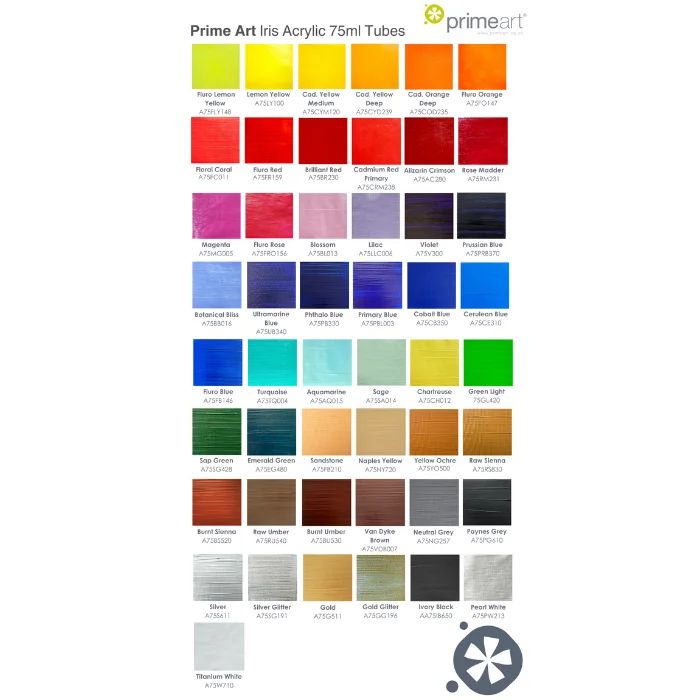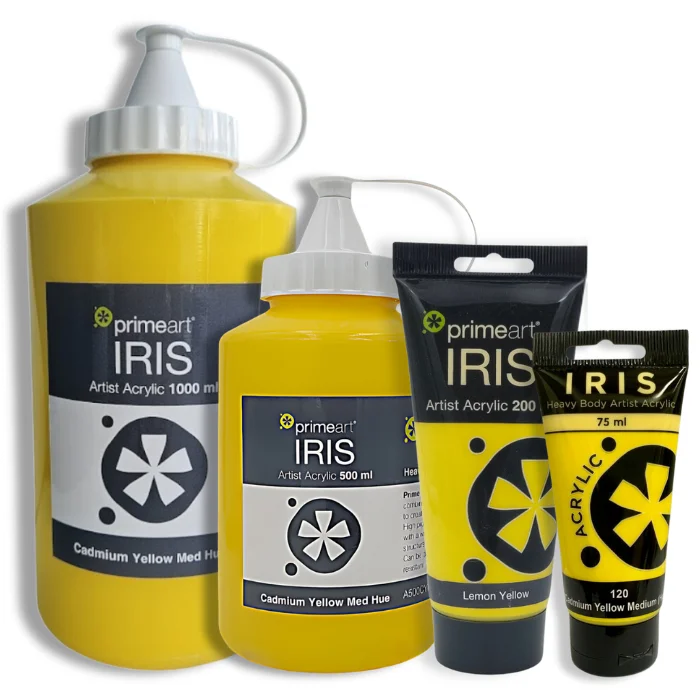Botanical Bliss by Kim Black Prime Art Iris Acrylic Paint 75ml
NEW COLOUR!
- Iris Acrylic Paint is a pigment rich, smooth and buttery, heavy body Artist Acrylic.
- Iris Artist Acrylic provides excellent coverage by combining the finest pigments and superior binding.
- Iris Acrylics have a body similar to oil colours and peak beautifully straight from the tube with no thickeners.
- The Iris Acrylic 75ml palette offers a range of 38 vibrant, lightfast colours and also includes 6 fluorescents, 3 metallics and 2 glitters.
- When dry, the colours form a permanent film that is resistant to water, dirt and atmospheric pollution.
- Suitable for painting on most surfaces like canvas, paper, cardboard, polystyrene, glass and wood.
- Wide range of pigment rich colours.
- Excellent permanence and lightfastness.
- Range includes metallics, glitters and fluorescents.
- Smooth buttery consistency.
- Maintains peaks and brush strokes.
- Excellent mixing capabilities.
- Dries to a gloss finish.
- Can be diluted with water.
- Economical pricing makes IRIS acrylic exceptionally good value for money.
- Iris Acrylic Paint 75ml Tubes are available in a range of 49 colours.
- Limited colours are also available in 200ml, 500ml and 1000ml options.
R49.00
Standard Shipping
NEW COLOUR!
- Iris Acrylic Paint is a pigment rich, smooth and buttery, heavy body Artist Acrylic.
- Iris Artist Acrylic provides excellent coverage by combining the finest pigments and superior binding.
- Iris Acrylics have a body similar to oil colours and peak beautifully straight from the tube with no thickeners.
- The Iris Acrylic 75ml palette offers a range of 38 vibrant, lightfast colours and also includes 6 fluorescents, 3 metallics and 2 glitters.
- When dry, the colours form a permanent film that is resistant to water, dirt and atmospheric pollution.
- Suitable for painting on most surfaces like canvas, paper, cardboard, polystyrene, glass and wood.
- Wide range of pigment rich colours.
- Excellent permanence and lightfastness.
- Range includes metallics, glitters and fluorescents.
- Smooth buttery consistency.
- Maintains peaks and brush strokes.
- Excellent mixing capabilities.
- Dries to a gloss finish.
- Can be diluted with water.
- Economical pricing makes IRIS acrylic exceptionally good value for money.
- Iris Acrylic Paint 75ml Tubes are available in a range of 49 colours.
- Limited colours are also available in 200ml, 500ml and 1000ml options.
You may also like…
-
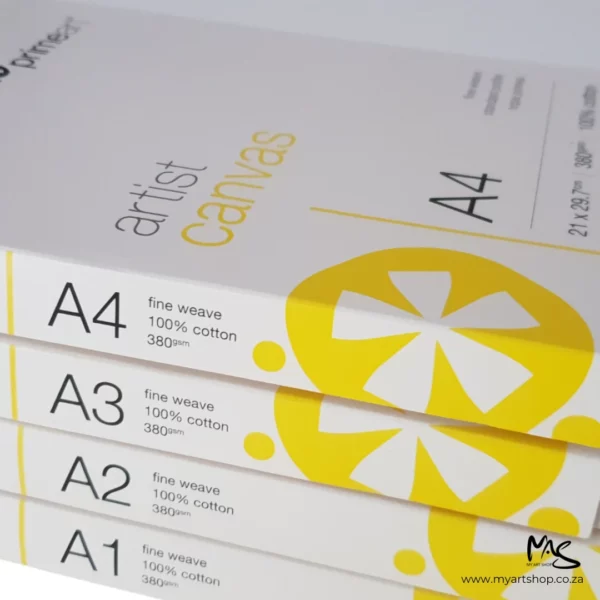
A3 Prime Art Stretched Canvas Yellow Label
Standard Shipping
R130.00 -
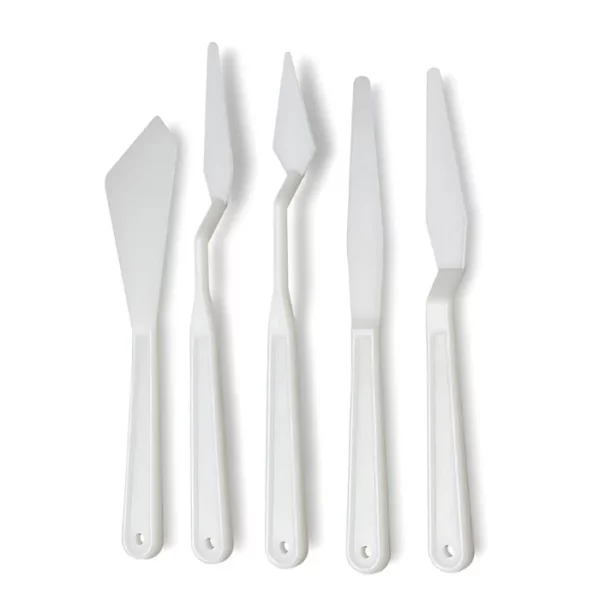
Prime Art Plastic Palette Knife Set
Standard Shipping
R35.00 -
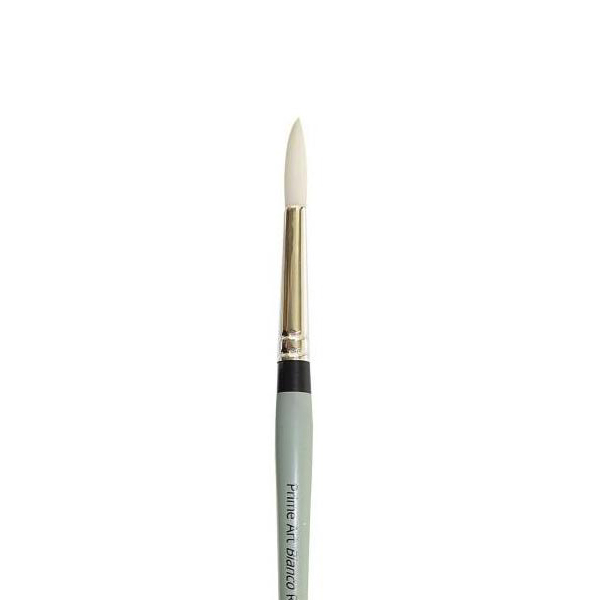
6 Round Prime Art Bianco Brush
Standard Shipping
R20.00 -
Sale!
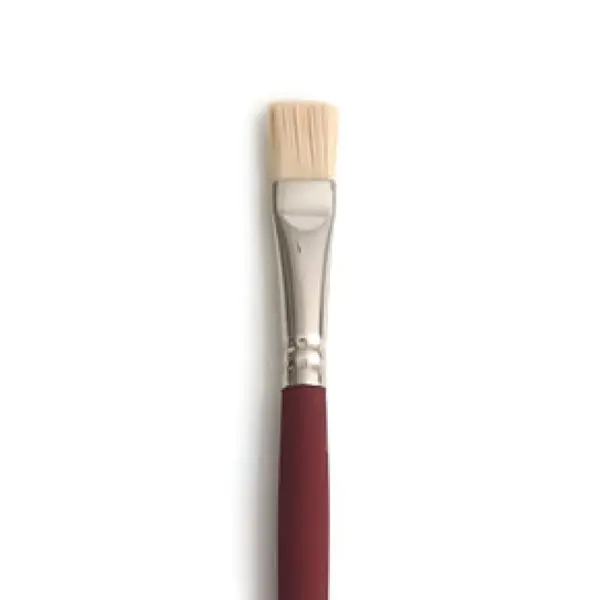
12 Bright Prime Art Synergy Brush
Standard Shipping
Original price was: R70.00.R56.00Current price is: R56.00. -
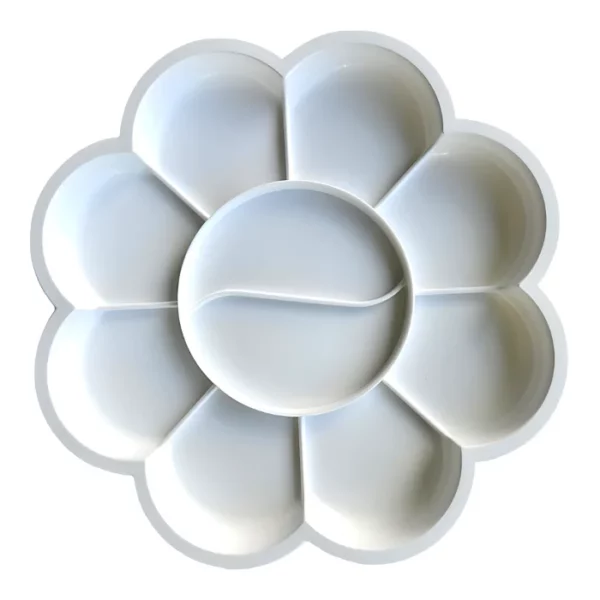
Prime Art Plastic Palette 8 Well Flower
Standard Shipping
R13.00
Iris Acrylic Paint is a distinctively thick impasto artist acrylic paint known for its remarkable qualities. It features high pigment saturation, ensuring exceptional coverage and vivid coloration. Its saturated colours offer excellent tinting characteristics, making it a versatile choice suitable for various surfaces. Once dry, Iris Acrylic Paints exhibit a glossy finish and become moisture and dirt resistant, enhancing the longevity of your artworks. Artists can enjoy the freedom to easily mix all colours, enabling the creation of a limitless range of creative shades.
Advantages to painting in acrylics:
Versatility: Acrylics can be applied to any oil and wax-free surface, including canvas, wood, paper, rocks, glass, fabric, cardboard, metal, and plastic, offering extensive creative possibilities.
Quick Drying: Acrylic paint dries rapidly, allowing for quicker project completion.
Water-Soluble: Easily washable from hands and brushes with soap and water while wet, eliminating the need for paint thinners.
Low Toxicity: Acrylics are less toxic and safer, particularly in environments with children and pets.
Affordability: Acrylic paints are cost-effective, making them a budget-friendly choice for artists.
Flexibility: Acrylics can be mixed with various mediums to achieve different textures, enhance adhesion, or alter drying times.
Durability: Acrylics are known for their resilience and flexibility, resisting cracking, peeling, or yellowing over time (paint dependent).
Vibrancy: Acrylic paints offer vibrant and bold colours for striking artworks.
Water-Resistance: Once dry, acrylics become water-resistant, preserving the integrity of your creations.
Iris Acrylic Paints are available in:
75ml
200ml
500ml
1000ml
Mixing Acrylic Colours
It is often said that you can create every color by mixing the three primary colors: red, yellow and blue in different ratios and combinations. What usually isn’t mentioned, however, is that undertones are something to keep in mind as well when mixing colours.
Primary & additional colours:
The primary colours – Primary Yellow, Primary Magenta and Primary Cyan tend to be a bit cooler, while the additional colours Azo Yellow Light, Naphthol Red Medium and Ultramarine create a warmer colour palette.
The cooler colours have blue undertones whereas the warmer colours have red and yellow undertones. Using a six-colour mixing system allows you to create colours in any colour temperature, giving you more options than with a three-colour mixing system.
Selecting the right colours:
To create bright, pure colours, select colours with undertones that don’t “pollute” your desired colour. For example, if you want to create a nice, bright violet, you should opt for Magenta and Cyan as they both have blue undertones.
If you were to mix Naphthol Red Medium with Ultramarine, you would still get a purple colour, but since the red has a yellow undertone to create a warmer colour, the purple will turn out a bit more yellow as well. This makes the colour duller and not as vibrant as it could have been using colours with blue undertones.
Using just the primary colours, you would not be able to easily create a bright orange, for example, since Magenta has blue undertones. Using the additional mixing colour Naphthol Red Medium and Azo Yellow Light, you can create a beautiful warm orange.
When mixing a cool-toned yellow with a cool-toned blue, the green that would come out is a bright, vibrant green. With the warm-toned colours, greens tend to lean more towards earthy brown or olive colours.
Acrylic FAQ’s
What are the benefits of Acrylic Paint?
Acrylic paint dries quickly, is very flexible and waterproof once dry. The paints are water-based, so there’s no odour and you can easily clean your hands and painting tools using just soap and water, no need for turpentine or white spirit.
They’re also incredibly versatile since they adhere to virtually any surface. Acrylic paints become even more versatile in combination with acrylic mediums. There are various mediums to adjust the characteristics of your paint to your liking, whether you want to thicken or thin your paint, add special effects or give your work an extra glossy or matt finish, anything’s possible with acrylic paint!
What do I need to start Acrylic Painting?
A nice selection of acrylic paint colours.
A selection of brushes in different sizes. The best ones to start with are a few round brushes, and a few flat brushes. Two of each should be enough. Get them in small and large sizes so you have some variety to choose from. You can also add a fine detail brush if you plan to create a detailed painting or a large paddle brush if you want to work on big surfaces.
A painting knife can be a great help when mixing colours since you can easily wipe off the paint, brushes can become too clogged with paint if you use them for mixing.
A cup of water to rinse your brushes with between colours.
A palette to mix your colours on.
And last but not least, the surface you’ll be painting on. This can be a canvas, paper, a wall or a household object, as long as it’s slightly absorbent and free of dust and grease, you’re most likely good to go!
Tip: thin your paint using an acrylic medium instead of water from the start! This helps you spread your paint more easily and evenly, so you can work with the same amount of paint for longer.
How long dies it take for Acrylic Paint to dry?
The drying time of acrylic paint depends on various factors, including humidity, temperature and the thickness of your layers, but it’s usually dry to the touch in about 30 to 60 minutes. Most paints will fully cure in 3 to 4 days, but you can add layers once the paint is dry to the touch. Varnish can be applied after a minimum of 4 days.
Can you delay the drying time of Acrylic Paint?
If you want to work ‘Alla Prima’, also known as direct painting or wet-on-wet, using acrylic colours, you need to act quickly as acrylic paint dries quite fast. Buy yourself some extra time to create stunning colour transitions, blend colours smoothly and allow yourself to work on the same area for longer by using a slow drying medium or acrylic retarder.
Why do Acrylic Colours appear darker when they dry?
The binder of both acrylic paint and mediums is a dispersion of acrylic resin particles in water. As long as the binder contains water, the binder appears white in colour. As the paint dries, the water evaporates and the acrylic resin particles form a uniform, colourless, transparent film. That white cast you see while the colour is wet has disappeared completely and the true colour of the pigments is now visible. This effect, often called colour shift, explains why acrylic paints become darker when they dry. The same counts for acrylic mediums. When you mix a colour with a medium, the wet paint will appear slightly lighter than on its own. After drying, the colour will be the same as the pure, dried paint.
Why does the brush stroke partially disappear once the paint is dry?
Since the binder of acrylic paint consists of acrylic resin particles and water, the paint layer will lose volume when the water evaporates from the paint. This means your brush strokes may become much more subdued once your paint has dried compared to when you first applied it. There are mediums to counter this.
Can Acrylic paint be used on top of oil paint?
Since oil paint creates an oily film, it is not a suitable base for acrylic paint. Acrylic paint needs a slightly absorbent surface that is free of dust and grease to adhere to.
High quality art supplies at the lowest prices!


